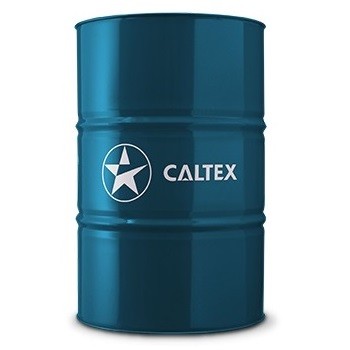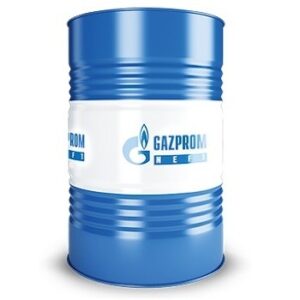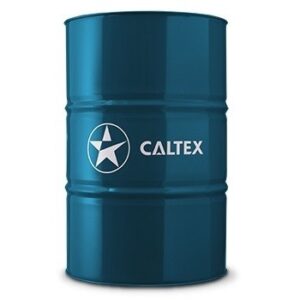Description
Delo® 4 Stroke Engine Oil 1000 Marine 30
Engine Oil 1000 Marine 30 is a high-performance, medium-alkaline, diesel engine oil for medium- and high-speed trunk piston diesel engines. Marine-Engine-oil are recommended for all types of trunk piston engines, including the latest high-output, medium-speed engines using high sulfur gas oil or marine diesel oil with a maximum sulfur level of 1.5%.
Product features :
- 1000 Marine oil is a lower alkaline reserve (12 Base Number) trunk piston engine oil (TPEO).
- 1000 Marine oil is designed for use in medium-speed trunk piston engines burning distillate fuels with sulfur content up to 1.5% in marine or stationary service.
Customer benefits :
- Maintains power output
The detergent/dispersant additive system provides control of high-temperature deposits in areas such as the under the crown of the piston and the piston ring belt area, enabling piston rings to function efficiently. - Prolongs oil life
Base Number (BN) level and superior alkalinity retention characteristics maintain sufficiently high BN under all service conditions to ensure corrosive acids formed by the combustion of fuel sulfur are effectively neutralized, thereby minimizing liner wear. - Efficient purifying system performance
Excellent water separation characteristics enable water to be centrifuged out with essentially no loss of additive.
Applications :
- Medium-speed trunk piston engines burning distillate fuels in marine main and auxiliary powerplant service.
- Medium-speed trunk piston engines burning distillate fuels in stationary powerplant service.
Service considerations :
- Base Number (BN) Selection
Trunk piston engine oil BN selection must be matched to the properties of the fuel and to the severity of the application. The use of an oil with a BN lower than required can result in rapid corrosive wear. Excessively high BN lubricants, relative to fuel sulfur content, can result in ash deposit accumulation on exhaust valves and result in possible valve distress. - Purification Systems
Active purification systems continuously remove combustion contaminants from the oil, by use of centrifugal type separators and automatic back-flushing type filtration systems. As a consequence, TPEOs are formulated to hold contaminants in suspension while in the engine and reserve tank but release them in the purification system. At the same time, they must resist the loss of detergent/ dispersant additives with the contaminants whilst undergoing purification. Because of this, they are formulated differently from automotive and railroad diesel engine oils that are designed for systems without active purification. Consequently, one type should never be substituted for the other.
As a result of the need for TPEOs to release their contaminants in purification systems, the additive system must be extremely well balanced. This “detergency balance” can be easily disturbed if large amounts of top-up oil are added to a system oil containing a higher than normal loading of contaminants, such as can occur with faulty purifier operation. For this reason, it is recommended that oil levels be maintained daily and not fall below 95% of nominal capacity.
In addition, top-ups with oil of different detergent/dispersant characteristics will very likely cause a disturbance in dispersancy balance and will, therefore, require careful management of oil changeover procedures.
Water can be centrifuged out with essentially no loss of additive. However, water washing of the oil is not recommended.
Some medium-speed trunk piston engines burning distillate fuels are not fitted with active purification systems, but rather with oil cleaning centrifugal filters such as those manufactured by Glacier. In applications where such oil cleaning centrifugal filters are fitted, the engine oil must carry contaminants in suspension and is drained and replaced based on factors such as Base Number depletion and the level of insoluble.
TPEOs do not generally offer a level of dispersancy sufficient for such applications. Accordingly, in most cases, an alternative engine oil type should be selected for medium-speed trunk piston engines burning distillate fuels and fitted with “centrifugal filters”. As it is not feasible to provide a generalized recommendation, the engine manufacturer’s recommendations should be followed in each case. - Liner Lacquering and Severe Service Conditions
Under certain severe operating conditions, some distillate-fueled medium-speed engines require the additional protection of TPEOs that have enhanced performance as compare with the industry norm for normal typical conditions. A key Indicator is the use of ultra-low sulfur diesel fuel, which under continuous heavy load conditions, such as are frequently found in fishing vessel main powerplants, can promote liner lacquering. As a result, the higher performance TPEOs intended to combat this effect are often referred to as “anti-lacquering” oils. Other indicators are continuous full-load operation with stationary powerplants, and engines which are operated without a purification circuit.
Where operating conditions require the use of higher performance, anti-lacquering TPEO, then Delo SHP is recommended as delivering the required performance. Delo 1000 Marine, intended for a broad range of applications where industry-normal performance is satisfactory, is less appropriate for the very severe applications. - Used Oil Analysis
Wherever possible, oil analysis should be carried out on a regular basis to determine when change-out of the oil should occur, in accordance with the manufacturer’s guidelines.
Our Other Diesel Engine Oil
- 15W40 4 Stroke Engine oil
- Engine Oil 15w40 400
- Engine oil 1000 Marine 40
- SAE 40 Engine Oil
- SAE 30 4 Stroke Engine Oil
- SAE 40 4 Stroke oil
- 4 Stroke Engine Oil
- Trunk Piston Engine oil
- Marine Engine oil 15w40
Other Applications :
Delo 1000 Marine is not suitable for use as a system oil in marine two-stroke crosshead engines.
It is suitable for use in marine reduction gearboxes where engine oils of its type and viscosity are recommended. It should not be mixed with EP type gear oils which are sometimes used in the same application.
It is also suitable for use in stern tube systems where engine oils of its type and viscosity grade are recommended. It should not be mixed with compounded type oils which are sometimes used in the same application.




